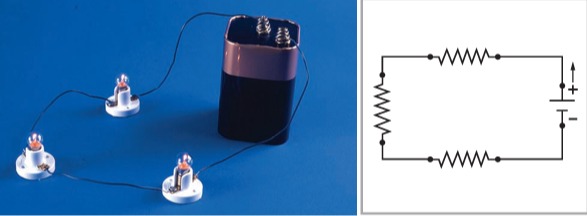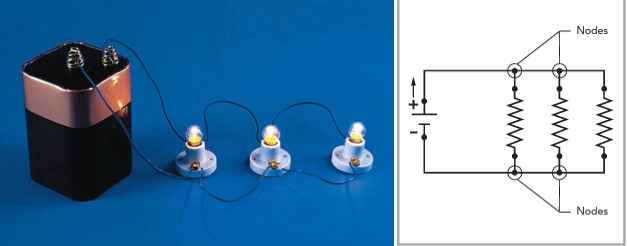Electrical power and electrical circuits
0.0(0)
Card Sorting
1/12
There's no tags or description
Looks like no tags are added yet.
Study Analytics
Name | Mastery | Learn | Test | Matching | Spaced |
|---|
No study sessions yet.
13 Terms
1
New cards
Electrical power
is the amount of work an electrical device can perform per second.
2
New cards
Formula of electrical power with work

3
New cards
Formula with voltage and current intensity

4
New cards
Relation between electrical power and electrical energy formula

5
New cards
Electrical circuit …
is a network in which electrical charges can flow continuously in a loop.
6
New cards
when can charges flow in a circuit? IN which type of circuit?
charges can only flow in a closed curcuit.
7
New cards
Every circuit must have these three components…
it must have a power supply to create a potential difference (measured in volts)
\- one or more elements that use electrical energy, such as a light bulb or a heating element (their resistance is measured in ohms)
\-wires that carry the charges from the power supply to the elements and then from the elements back to the source
\- one or more elements that use electrical energy, such as a light bulb or a heating element (their resistance is measured in ohms)
\-wires that carry the charges from the power supply to the elements and then from the elements back to the source
8
New cards
series circuit…
… is a circuit in which the elements are connected end to end.

9
New cards
Characteristics of a series circuit
If one of the circuit components is defective, the entire circuit stops working because the charges can no longer flow through it.
The energy used by the resistors adds up so that with each new resistor, the amount of energy available is reduced.
The energy used by the resistors adds up so that with each new resistor, the amount of energy available is reduced.
10
New cards
Parallel curcuit…
…is a circuit that contains at least one branch.

11
New cards
Characteristics of parallel circuit
If an element of the circuit is defective, the elements in the other branches can continue functioning because the current still flows through them.
The effect of each resistor is shared among the various pathways. The total resistance therefore drops instead of increasing as resistors are added.
Current intensity is shared among the various resistors, with the result that every time a resistor is added, the demand for current increases, as does the risk of an overload. It is therefore useful to install protective devices, such as fuses or circuit breakers, in this type of circuit.
The effect of each resistor is shared among the various pathways. The total resistance therefore drops instead of increasing as resistors are added.
Current intensity is shared among the various resistors, with the result that every time a resistor is added, the demand for current increases, as does the risk of an overload. It is therefore useful to install protective devices, such as fuses or circuit breakers, in this type of circuit.
12
New cards
Which type of circuit is effective? why?
parallel circuit
13
New cards
How to calculate resistance in both types of circuits?
